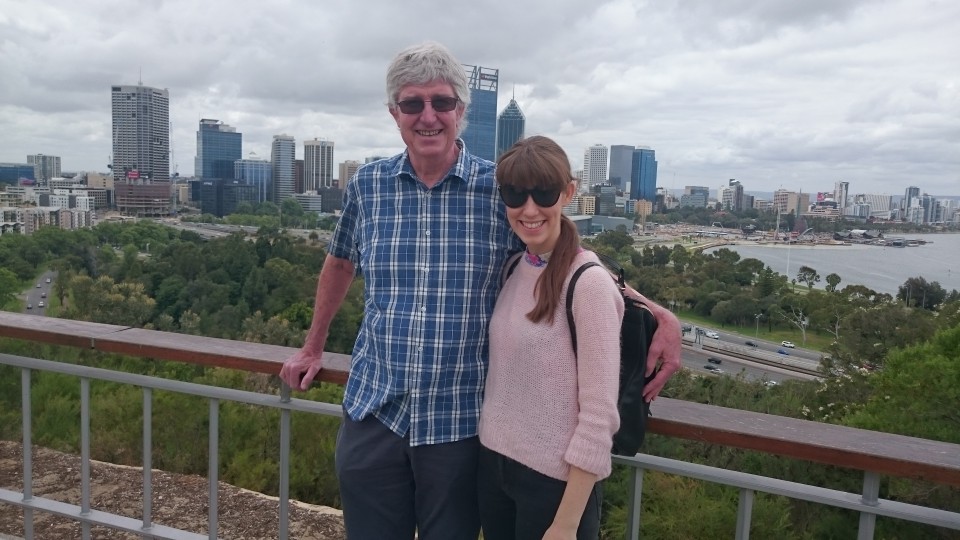Sophie shines light on rare lung disease
Today is Rare Diseases Day and Sophie Nolan is creating awareness about a very rare lung disease in memory of her father.

Alpha-1 antitrypsin deficiency is a rare genetic condition, where the body’s ability to produce a protein called alpha-1 antitrypsin is reduced, resulting in damage to the lungs and other organs like the liver and the skin.
When this condition affects the lungs, it causes emphysema.
It is estimated that 30,000 people in Australia and New Zealand have AATD, however, less than 10 per cent have been diagnosed.
Danny Nolan passed away from the rare disease a few years ago at the age of 63.
“It was heart-wrenching to watch dad as he became progressively weaker, chronically congested and struggled to breathe,” said 33-year-old Sophie.
“But then we received the miraculous news that dad would receive a lung transplant. Sadly, following complications post-transplant, my dad passed away.
“I was so incredibly proud of him, as in the face of this debilitating disease, he showed incredible courage and did everything he could to embrace life and appreciate the simple pleasures.”
Sophie decided she would do her dad proud but also wanted to raise awareness about the debilitating disease and decided to tackle the Rottnest Island Marathon and fundraise at the same time last year. She raised more than $4,000 that was donated to the Institute for Respiratory Health to undertake life-changing research.
“Today on Rare Diseases Day I want to spotlight this rare disease, that many Australians know nothing about. Hopefully, my fundraising and efforts to create awareness about this rare genetic disorder will encourage others to donate to it so that vital research can be undertaken by the Institute to find a cure one day.”
In Perth, structures will light up in pink, purple, blue or green as part of Rare Diseases Day, which is celebrated today on the last day of February. Optus Stadium, Rockingham Clock Tower and Matagraup Bridge will all participate.
Photo – Sophie with her dad Danny.
Research is the only way we can find breakthrough treatments and cures to make sure people’s lives aren’t limited by lung disease. It’s at the heart of what we do and now more than ever we need your support to continue funding vital research.